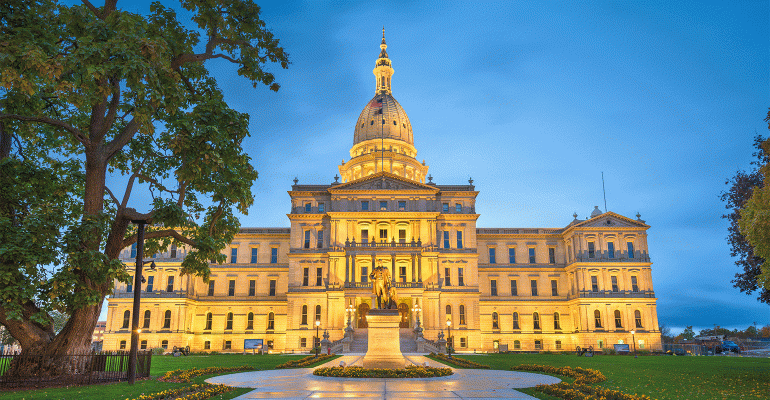A Michigan judge ruled Tuesday that two 2018 voter initiatives to increase the state’s minimum wage and institute paid sick-leave requirements for employers should be put into effect and that Republican lawmakers' strategy to circumvent them violated the Michigan Constitution.
The ruling by Court of Claims Judge Douglas Shapiro, which can be appealed, would put a $12 an hour minimum wage into effect in Michigan. The minimum wage is now $9.87 an hour
Justin Winslow, president and CEO of the Michigan Restaurant & Lodging Association, disagreed with the ruling in Mothering Justice, et. al. v. Dana Nessel.
“We respectfully disagree with the interpretation of Judge Shapiro and strongly encourage the ruling to be stayed during the inevitable appeals process,” Winslow said in a statement. “If the 2018 proposals are allowed to be implemented as originally crafted, restaurant operators would immediately experience 156% labor cost inflation at a time when their recovery is already tenuous and the average wage for tipped employees in Michigan is currently $24 per hour.”
The president of the group, which represents more than 5,000 Michigan foodservice and lodging businesses, added that “The inevitable result would be instantaneous menu price increases and significant layoffs during peak travel season. And those operators still indebted from over 400 days of dining room closures and occupancy restrictions that barely survived the last two years would be forced to close their doors permanently.”
In his Tuesday decision, Shapiro said GOP-backed laws that altered the original initiatives, which were the result of statewide petition campaigns, were unconstitutional.
Michigan One Fair Wage circulated petitions in 2018 to have voters consider a proposal to increase the minimum wage to $12 an hour by 2022 from $9.25 an hour, at the time, and tie the rate to inflation. Michigan Time to Care, meanwhile, backed a proposal that called for employers to provide paid sick time to their workers.
The Legislature, controlled by the GOP, passed two laws before election day that allowed them to put forward alternative proposals and enact them with simple majority approval.
"The process effectively thwarted the intent of the people and denied them the opportunity to vote on whether they preferred the voter-initiated proposal or the Legislature’s suggested modifications,” Shapiro noted.
The Michigan House approved the original minimum wage proposal on Sept. 5, 2018, in a vote of 78-28, with support from both Democrats and Republicans. During the lame duck session, on Dec. 4, 2018, House Republicans supported the revised version in a 60-48 vote.
Shapiro was appointed to the Court of Appeals by former Gov. Jennifer Granholm, a Democrat. Court of Appeals judges are assigned to the Court of Claims.
Saru Jayaraman, president of One Fair Wage, a national nonprofit, said in a statement: “Workers have been fighting this subminimum wage, which has been a source of sexual harassment and racial inequity, for decades — including in 2018, when we collected 400,000 signatures to put the issue on the ballot.”
Contact Ron Ruggless at [email protected]
Follow him on Twitter: @RonRuggless
https://twitter.com/RonRuggless





